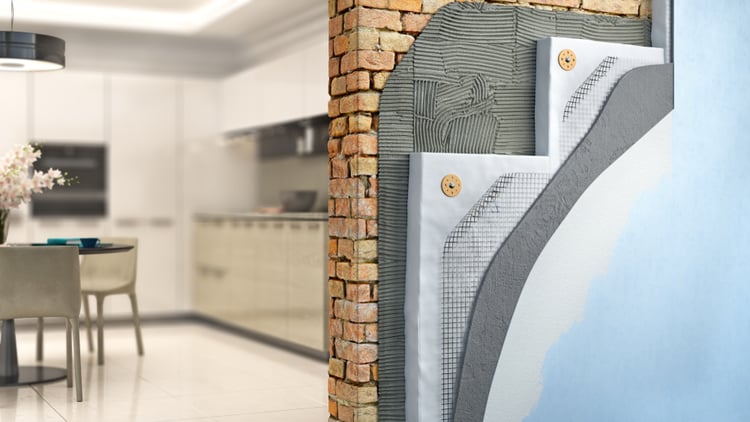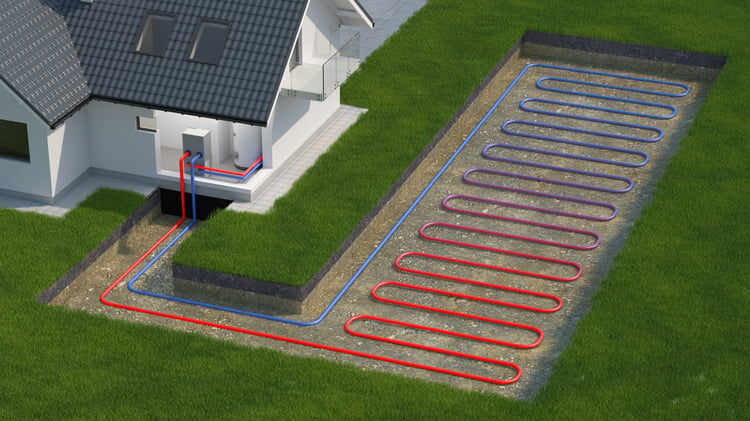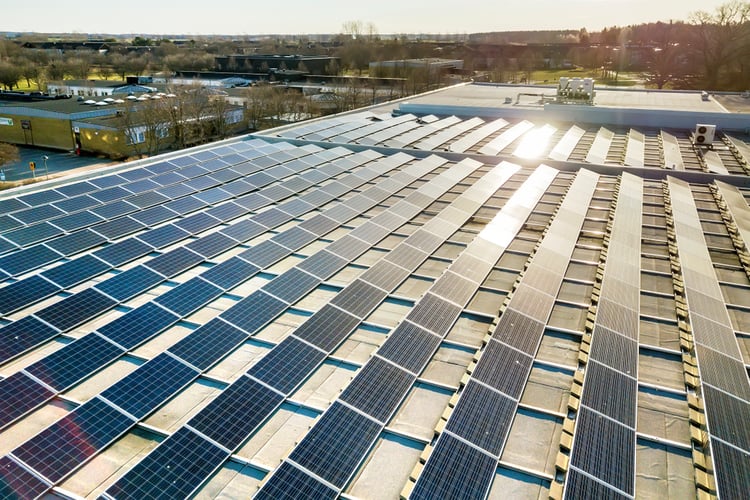Electric Heating for Buildings: 3 Design Tips to Reduce Your Bills

As you might have read in the news and our previous blog post, New York City has enacted Intro. No. 2317-A, which bans gas-fired space heating and hot water systems in new constructions and major renovations. Specifically, the ban applies for all fuels releasing more than 25 kg of carbon dioxide per million BTU, which also covers #2 and #4 fuel oil.
The new law applies for buildings under seven stories after December 31, 2023, and for buildings seven stories or taller after July 1, 2027. If you’re planning a new construction or major renovation, and your project is submitted after those dates, you will need a fully electric space heating and hot water design. Otherwise, the NYC Department of Buildings will simply reject your application, unless your project falls under one of the Intro. 2317 exceptions.
Get an electric heat pump design for your building and slash your emissions.
As you can see in the latest data from the US Energy Information Administration, NYC has some of the highest electricity prices in the country. Since developers will be forced to use electric heating in the near future, there are concerns about excessively high power bills once the natural gas ban comes into effect. However, there are some design strategies you can follow to heat a building with electricity while keeping your costs low, and we will cover them in this article.
1) Get an Airtight and Well Insulated Building Envelope

Regardless of the energy source used by your heating system, an efficient building envelope will greatly reduce its operating costs. Your building will be able to hold heat inside more effectively during winter, which means you need less BTUs to keep an adequate temperature. Since your heating system is dealing with a reduced workload, your energy bills are decreased.
If you want to have an efficient building envelope, there are two critical requirements:
- Adequate insulation for your walls, roof structure, floor slabs, basement and any building elements that are exposed to the exterior.
- Having an airtight construction, since air leaks represent a major heat loss for your building. Even the best insulation becomes ineffective when there are multiple air leaks.
A well insulated and airtight building will also reduce your power bills during summer, where it accomplishes the opposite effect. In this case, the building envelope acts as a barrier against heat gain from the exterior, which means your air conditioning system consumes less energy.
Having a well designed building envelope is the first step to reduce your HVAC costs during the year. Now that Intro. 2317 is banning fossil fuel heating for new buildings in NYC, having an efficient envelope will be very important for landlords and developers.
2) Use High Efficiency Heat Pumps for Space Heating and Hot Water

Considering the high kilowatt-hour prices in NYC, electric resistance heating is not a viable option for building owners. Resistance heaters can only deliver one unit of heat for every unit of electricity consumed, and you can expect a hefty power bill if you use them for an entire winter. However, electric heat pumps can achieve the same output with a much lower input.
- An air-source heat pump (ASHP) can deliver 2-4 units of heat per each unit of electricity consumed. This means that electricity consumption is reduced by 50% or more, for a given workload.
- Water-source and geothermal heat pumps are even more efficient, and some designs can deliver 6 units of heating per unit of electricity consumed. This results in energy savings of over 80%.
The upfront cost of a space heating system with electric heat pumps can be high, especially in a large building. However, these systems can often qualify for financial incentives and low-interest loans. This means building owners can install them at zero upfront cost, and the loan is then paid off with the energy savings achieved over time. For example, some C-PACE loans come with interest rates below 5% and repayment periods of up to 30 years.
3) Generate Your Own Electricity Onsite Solar Panels or Other Renewable Energy Systems

By combining an efficient building envelope and efficient heat pumps, you can minimize the kilowatt-hours required to heat your indoor spaces and water supply. However, you can save even more by generating your own electricity, instead of depending on expensive kilowatt-hours from the grid.
Solar panels are a cost-effective option, and they qualify for many financial incentives in New York City, which are added to the 26% federal tax credit. The NY-Sun program from NYSERDA offers rebates in many parts of the state, and residential systems qualify for a 25% state tax credit in addition to the federal incentive. Solar power systems also get a four-year property tax abatement, and they are exempt from the sales tax.

Michael Tobias
Michael Tobias, the Founding Principal of NY Engineers, currently leads a team of 150+ MEP/FP engineers and has led over 4,000 projects in the US
Join 15,000+ Fellow Architects and Contractors
Get expert engineering tips straight to your inbox. Subscribe to the NY Engineers Blog below.

